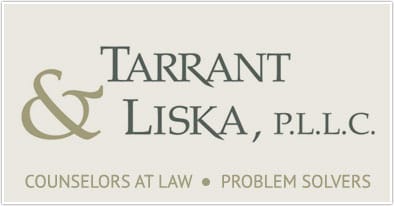Close Guidance For The Minnesota Probate Process
The probate process is complex and can be cumbersome without the assistance of a knowledgeable and experienced lawyer. There are many considerations to address in the process, many of which are unwritten but can still impact the process significantly.
At Tarrant & Liska, P.L.L.C., we help our clients make informed decisions through the process and carefully analyze all documents, assets and relationships involved with the proper distribution of assets. We advise and represent personal representatives (executors), heirs, devisees, trustees and other beneficiaries through informal and formal processes.
Our attorneys can guide you at every stage of probate proceedings.
Call 651-315-8738 to schedule a meeting.
The Different Levels Of Probate Oversight
In Minnesota, there are three levels of formality for the probate matters when someone dies:
- Informal probate
- Formal supervised probate
- Formal unsupervised probate
In addition, in certain limited circumstances, it may be possible to use an affidavit of collection instead of proceeding with a probate.
Informal probate is most often used when a valid will exists and the will is not contested. If the decedent did not leave a will, it still may be possible to use this procedure if there are no contests or other complications. In response to an application, the probate court appoints a personal representative to administer the estate assets. This process minimizes the court’s involvement and allows for efficient distribution. However, in this process the will may be contested at any time.
Formal probate can be unsupervised or court-supervised. If a will is not valid, or if it is ambiguous or contested, formal probate will be necessary. If there is no will but there are special family circumstances or it is anticipated that there will be contests and problems, formal probate will also be necessary. All beneficiaries and heirs at law must be given notice of the hearing to start a formal probate and should file any objections prior to the first hearing. If a beneficiary or heir at law does not contest the will or determination of intestacy and heirship made by the court after that first hearing, his or her ability to contest the court’s order later is limited to certain unusual circumstances. Whether the administration proceeds as supervised or unsupervised after the probate is formally started depends on whether the court’s continued involvement in the administration is required or advisable.
How We Help You Through Probate Proceedings
Our attorneys have decades of experience assisting clients in the Twin Cities metro area and throughout Minnesota with the duties of probate and estate administration. Each county in the state handles probate differently and dictates the circumstances in each case. With our help, you can successfully navigate the process and ensure that estate assets and trusts are distributed according to the wishes of the decedent if the decedent left a will or according to the intestate statute if the decedent did not leave a will.
Regardless of which form of probate process is issued, significant responsibility is placed on the personal representative (old term is executor) in the probate process. We help executors fulfill their obligations and protect the interests of heirs and other beneficiaries to the will. We provide the same service to trustees entrusted with the proper management and distribution of testamentary trusts.
We also assist others (e.g. heirs, devisees and other beneficiaries named in estate plans) by ensuring that personal representatives, trustees and all beneficiaries fulfill obligations in accordance with the wishes of the decedent as defined in the will or trust. In addition, we represent any party in a contested probate proceeding.
Our services apply to all probate matters. We are happy to explain and assist with:
- Contested probates
- Uncontested probates
- Decrees of descent
- Summary administrations
- Ancillary probates
- Affidavits for collection
- Affidavits of survivorship
There are a variety of issues that can arise in estate administration such as creditors’ claims, classification of assets, determination of assets exempt from creditors’ claims, tax consequences of distributions, and valuation and transferring of property.
Our Probate Attorneys Are Ready To Help
We can help you ensure the probate process is as smooth as possible and protect your rights. Contact us by email or call us at 651-315-8738 (toll-free at 888-342-2493).
Our offices are conveniently located on Concordia Avenue, just off Snelling Avenue, in St. Paul.
Payment plans can be arranged, and Visa and Mastercard are welcome.
